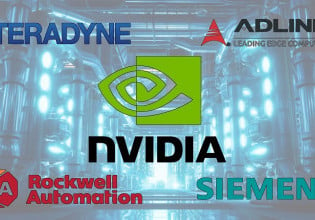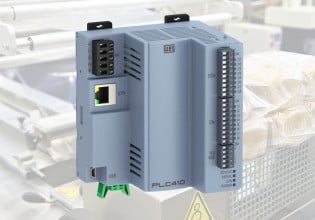Thoughts?
Servo Dumper. Replace hydraulics!
- Thread starter JamesProtheroe
- Start date
Scroll to continue with content
The biggest problem with (electro-)hydraulic servos is oil quality, which means poor maintenance--NOT the servos. Expecting hydraulic servos to operate properly and "forever" is simply NOT a recipe for successful operation and reliability. Oil maintenance is SO MUCH MORE than changing filters (which amazingly don't usually get changed when they should be...!). Regular testing/analysis and proper maintenance ("polishing"; treatment(s); etc.) as well as timely replacement.
A little more about some (electro-)hydraulic servo applications--some are incredibly misapplied and just won't work suitably or reliably without some serious analysis and re-thought. And one place to start with that is by working with a servo supplier and/or manufacturer. Maybe an electric actuator is appropriate--maybe not.
BUT, having said all of the above--you haven't given any useful information. Dumper, humper, bumper. What are you dumping? What are the conditions? What are the problems you're experiencing?
So, my thoughts are--join the Great Resignation! You're not cut out for this work.
Let someone with technical knowledge, initiative and a modicum of experience have the job and do some proper analysis and who can write a proper technical description and request for suggestions and assistance. There are Control.com forums for Robotics, Motion Control and Sensors & Calibration--and you put this post in "General Discussion"/"General Automation Chat" so how the hell are we supposed to have the slightest inkling of the application--other than there's a servo and hydraulics.
With low unemployment in many technical industries finding a new job should be no problem. Go forth and prosper, and if you insist on staying in this job and requesting ideas or comments from others, read your post as if you didn't know anything about the poster's issues/needs and think about how you could incorporate a little more information to help others try to help you.
A little more about some (electro-)hydraulic servo applications--some are incredibly misapplied and just won't work suitably or reliably without some serious analysis and re-thought. And one place to start with that is by working with a servo supplier and/or manufacturer. Maybe an electric actuator is appropriate--maybe not.
BUT, having said all of the above--you haven't given any useful information. Dumper, humper, bumper. What are you dumping? What are the conditions? What are the problems you're experiencing?
So, my thoughts are--join the Great Resignation! You're not cut out for this work.
Let someone with technical knowledge, initiative and a modicum of experience have the job and do some proper analysis and who can write a proper technical description and request for suggestions and assistance. There are Control.com forums for Robotics, Motion Control and Sensors & Calibration--and you put this post in "General Discussion"/"General Automation Chat" so how the hell are we supposed to have the slightest inkling of the application--other than there's a servo and hydraulics.
With low unemployment in many technical industries finding a new job should be no problem. Go forth and prosper, and if you insist on staying in this job and requesting ideas or comments from others, read your post as if you didn't know anything about the poster's issues/needs and think about how you could incorporate a little more information to help others try to help you.
Ditto, about knowing the application. Servo motors and servo hydraulics have different strengths and weaknesses. I would also like to add that the design is often flawed.
My company makes servo controllers. We specialize in hydraulic servo control. Everyone has been predicting the doom of hydraulics for the last 20 years yet our business keep growing. Many of the old bang-bang systems are being replaced. The old bang-bang systems would leak due to the hydraulic shock involved. Also, better algorithms allow the using hydraulics where they weren't before.
In general, motors have an advantage when it comes to constant speed type of applications like conveyors and small systems. Hydraulics have an advantage on bigger systems, systems that require a lot of force and systems were the actuators must be small relative to the force required. Hydraulic actuators are also more shock resistant than the motorized linear cylinders.
My company makes servo controllers. We specialize in hydraulic servo control. Everyone has been predicting the doom of hydraulics for the last 20 years yet our business keep growing. Many of the old bang-bang systems are being replaced. The old bang-bang systems would leak due to the hydraulic shock involved. Also, better algorithms allow the using hydraulics where they weren't before.
In general, motors have an advantage when it comes to constant speed type of applications like conveyors and small systems. Hydraulics have an advantage on bigger systems, systems that require a lot of force and systems were the actuators must be small relative to the force required. Hydraulic actuators are also more shock resistant than the motorized linear cylinders.
You May Also Like
-

Agility Robotics Develops Cloud Automation Platform for Robot Fleet Management
by Seth Price
-

NVIDIA Forges Industry Partnerships for Gen AI and Industrial Ops
-

Softing’s Latest smartLink Devices, Now With PROFINET Network Access
by Seth Price
-

Introducing the PLC410, WEG’s New PLC: Smaller But with Powerful Specs


